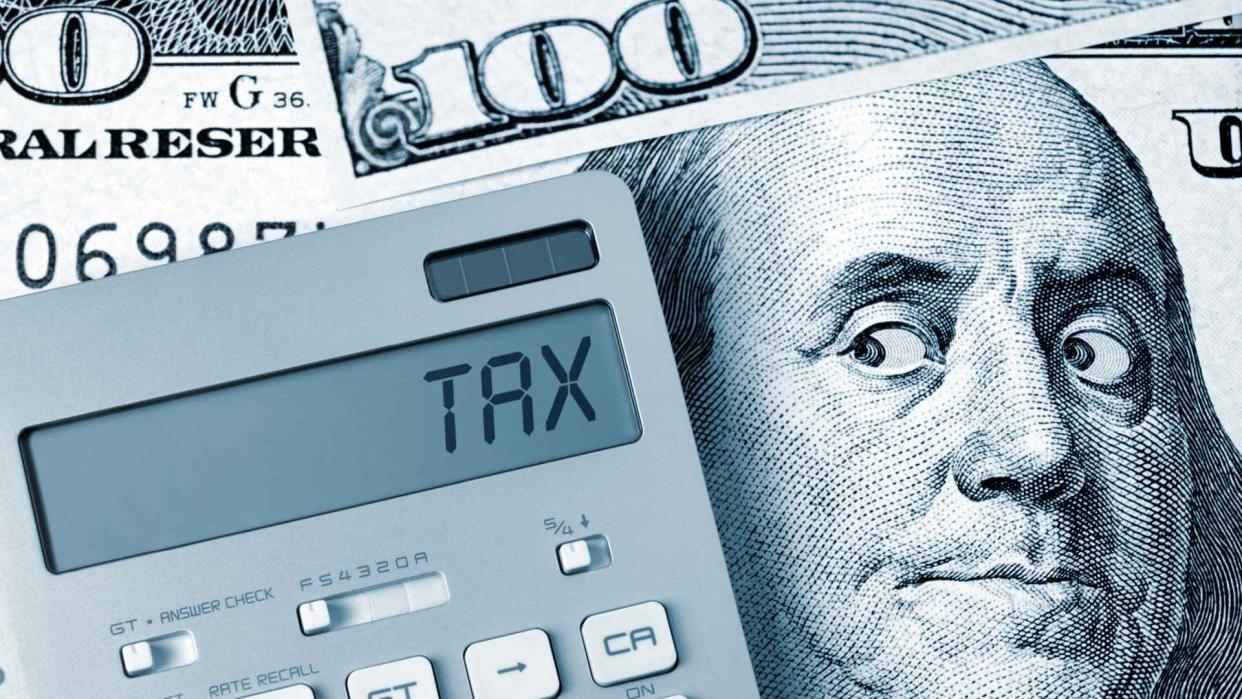I’m a Tax Preparer: Don’t File Taxes Until You Know These 6 Things About Your Finances

With Tax Day looming, it’s natural to want to hustle through the process, give the IRS its due and get your taxes out of the way.
But before you file your returns and settle with the Treasury Department, you need to know a few things about your own financial life to avoid costly mistakes.
For You: IRS Increases Gift and Estate Tax Exempt Limits — Here’s How Much You Can Give Without Paying
Try This: 7 Unusual Ways To Make Extra Money (That Actually Work)
“Each of these can have a significant impact on your income tax liability from your overall taxable income to the deductions to offset gross income and to the tax rate brackets utilized to calculate your tax liability,” said Johan Garcia, CPA, owner and sole author of After Tax Cash and principal of JG CPA & Advisory.
You might have filled in all the blanks on your tax software or answered all your CPA’s questions, but you’re not ready to file until you know the following things about your own financial life.
Your Earnings and Tax Bracket
When it comes to paying income taxes, the primary consideration, naturally, is income. The IRS knows exactly what you made last year, so ensure you do too.
“You must know your full income for 2023 and the updated tax brackets, adjusted for inflation,” said former Wells Fargo financial advisor Jonathan Feniak, who oversees financial and tax strategies as general counsel and head of finance at LLC Attorney in Colorado. “These brackets adjust every year to reflect inflation, so it’s essential you understand how much you owe for 2023, as it may be quite different from the year before.”
Trending Now: The 7 Worst Things You Can Do If You Owe the IRS
If you collect a paycheck from an employer, it’s fairly straightforward. You’ll receive a W-2 and enter the information into the relevant section of Form 1040. But there might be more to it than that, and before you file, you have to ensure you’ve accounted for every taxable dollar that came in last year.
Your Income From Self-Employment, Side Gigs and Contract Work
Underreporting income is one of the most common and potentially costly errors you can make on your returns, which is why you have to account for every penny you made last year before you file your returns — even if you didn’t receive those pennies from an employer.
“Individual and business tax filers need to be sure that they’ve gathered all of their income items, or that they’ve been accounted for — wages, investments, and freelance or contract work,” said Garcia.
If you earned $400 or more from side hustles or other work you provided on a non-employee basis, you should receive a 1099 — and the IRS requires you to report that income.
Income You Earned From Investments
Tell the IRS about income even if you didn’t work for it. Before you file, make sure you know about — and have the appropriate tax documents to verify — every dollar of investment income earned throughout the year.
That includes income earned through:
Capital gains
Stock options, trades or splits
Dividends
Interest
Digital assets like cryptocurrency
Benefits You Received Throughout the Year
The IRS also requires you to report benefits paid to you, which counts as income. That includes but isn’t limited to Social Security benefits, unemployment compensation, distributions from annuities, pensions or retirement funds and even some survivor benefits and life insurance payouts.
Now, the Hard Part: All the Other Income You Might Have Forgotten
It’s easy to let some income fall through the cracks, but you can’t — if you forget to report it, the IRS could penalize you, audit your returns and/or compel you to file an amended return.
Before you file, make sure you answer these questions:
Did you get scholarship money last year?
Did you win any prizes or awards?
Did you win money gambling?
Did you win court awards or damages?
Were any of your debts canceled?
Did you receive alimony payments?
Did you collect any tax refunds, reimbursements or rebates?
These income sources are more obscure and easier to overlook than wages, side hustle earnings and dividends or interest, but no less important.
How Life Changes Last Year Could Impact Your Finances and Taxes
Finally, consider how major personal, private and professional life events impact your finances and taxes.
“It’s equally important to be aware of any significant life changes — like marriage, divorce or the birth of a child — as these could affect filing status and eligibility for tax credits or deductions,” said Garcia.
Other life events that could have tax implications include:
Retiring
Coming out of retirement
Buying a house
Selling a house
Buying an investment property
Adopting a child
Receiving an inheritance
Pursuing higher education
More From GOBankingRates
I Was Retired, but Wasted Big Money On These 3 Things and Had To Go Back To Work
5 Reasons You Should Consider an Annuity For Your Retirement Savings
4 Reasons You Should Be Getting Your Paycheck Early, According to An Expert
This article originally appeared on GOBankingRates.com: I’m a Tax Preparer: Don’t File Taxes Until You Know These 6 Things About Your Finances
